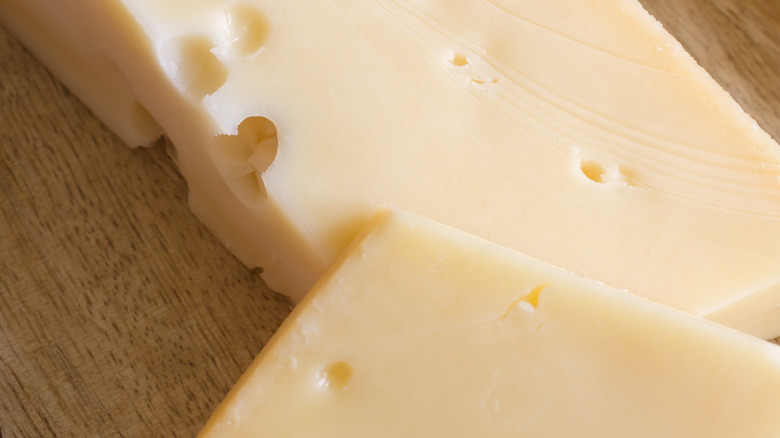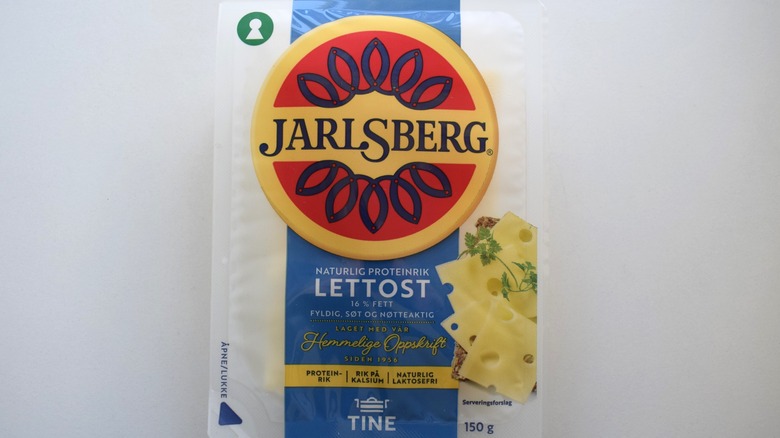The Norwegian Cheese That's Actually Good For You
Cheese has the power to make just about any dish better. In all of its creamy, chewy, fragrant glory, cheese has been a staple element of cuisines around the world. And there's no shortage of cheese to choose from, no matter where you live, where you're traveling, or your personal palate. In fact, it's been estimated that nearly 1,800 unique varieties of the glorious ingredient exist, according to Dairy Farmers of Wisconsin.
Despite being commonly considered an indulgence, most types of cheese come with a surprising amount of perks. Per Healthline, for example, cheese is rich in protein, fat, calcium, omega fatty acids, A and B vitamins, zinc, phosphorus, and riboflavin — mainly due to these nutrients appearing in dairy milk, the key component of cheese.
But a study published in June has revealed that a popular variety of cheese with origins across the pond offers a number of health benefits in addition to the average slice, wedge, or cube. And this particular cheese comes all the way from the home of Roald Dahl and Viking folklore: Norway.
Jarlsberg cheese may promote bone health
A healthful cheese? Yes, please. Jarlsberg cheese first came to be in 1956, and to this day, only a few cheesemongers know its longstanding formula. It all started with Ole Martin Ystgaard, a research professor at the Dairy Institute at the Agricultural University of Norway, which is located in the village Ås. Ystgaard and his students invented a type of cheese that would one day be deemed a culinary revolution, and not just for its delicious bite. EuroNews explains that Jarlsberg possesses a mild, nutty flavor and a semi-soft, holey texture, similar to Swiss.
In June, the British Medical Journal published a study conducted by Norwegian scientists that shows Jarlsberg cheese is not only good for the bones, but it also doesn't pose a risk for raising one's cholesterol levels. What sort of magical fromage is this, you ask? The analysis involved 66 women, who consumed French Camembert every day for six weeks, then switched to Jarlsberg for another six weeks. In the end, the Jarlsberg group showed an "increased bone anabolism and a possible reduced risk of adverse metabolic outcomes," according to the report. In other words, Jarlsberg may contribute to bone strength and help inhibit diseases such as osteoporosis.
Thankfully, while Jarlsberg tastes great on its own, there are a number of delightful recipes that call for it, according to the cheese's official website. Jarlsberg can be incorporated into pizza, burgers, dips, hors d'oeuvres, soups, salads, pasta, biscuits, and so much more.

